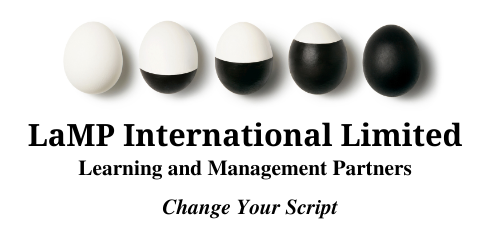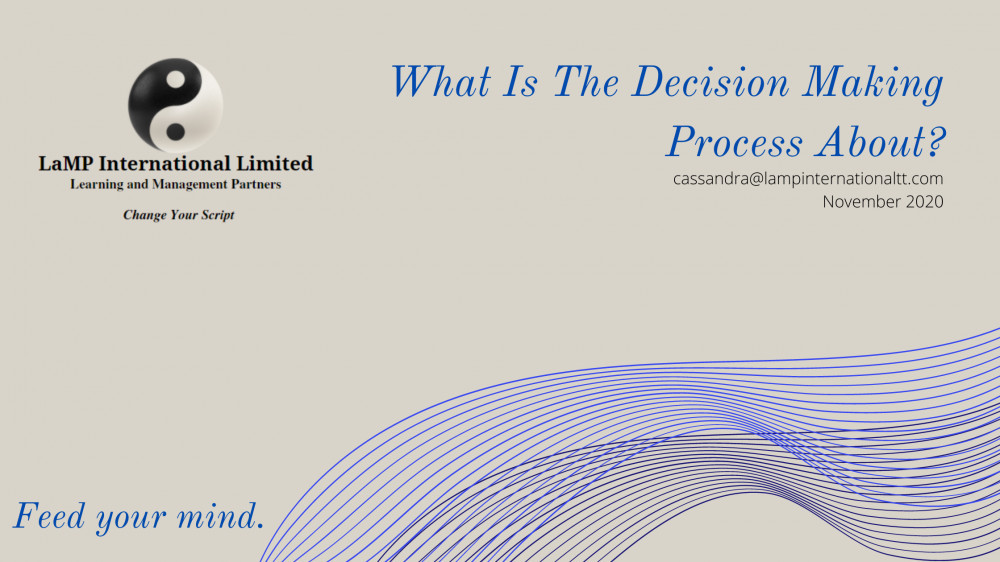Decisions And Choices
You make millions of decisions in your lifetime. Have you ever wondered what is the decision-making process about?
- How do you go through the steps before you make a choice and act on it?
- Could you have achieved better results if you had made different decisions?
- Is your decision-making efficient and effective?
Taking the time to understand this process may well help you to make better choices in your life. Better choices mean better results and more satisfaction and joy. These are the goals and objectives that many of you are seeking.
For many years, I struggled with my decision-making process. My emotions got in the way most of the time and I was more reactive that proactive. Understanding the process and learning how to manage it more effectively has resulted in me enjoying a much better quality of life.
Know The Issue At Hand
A few years ago I was asked by a corporate client to counsel one of their employees. She was a member of the senior staff and frequently late to work. To compound the situation, she would often disappear from work, sometimes not returning for the duration of the day.
Her manager had spoken to her occasionally and written to her twice. He expressed his dissatisfaction to me, not in a very kind way. Whilst he wanted to terminate the employee, his senior manager had a gut feeling that something was not quite right.
He was determined to have an independent intervention before making a decision to terminate.
One issue. Two different perspectives and decision-making processes.
When I first met with the employee, she was reluctant to speak and share her thoughts and feelings with me. Although she did open up a little, it was not until our third meeting that she allowed herself to relax and speak freely. What caught me was that she did not deny any of the feedback given.
She confirmed that she was frequently late and often disappeared from the office, sometimes not returning. “But”, she said, “it was always with good reason.”
As it turned out, there were two issues that emerged. The first and most important was that she was a single-parent who whose only child was on drugs and had left home. Her lateness was due to depression and her staying up at night looking for her child. She disappeared from the office to go looking whenever someone called her to say that they had seen her child.
Gather All The Facts
Being committed to confidentiality, I requested her permission to share this new-found information with her direct manager. Her calmness was admirable but she declined saying that I could however, share it with her manager’s manager, which I did.
He was also very calm and seemed almost happy when I shared the information. As it turned out, he had observed the employee one day and followed her as she left the office. He did see her take food to someone but did not know who it was.
She was an excellent employee. Aside from the lateness and absence and he was convinced that there had to be a meaningful reason for her behaviour. He chose to not let his emotions get in the way but instead to investigate some more.
Together we shared a summary with the employee’s manager. He immediately became emotional and demanded that she be used as “an example to others” and be fired. He had no interest in extending support or any kind of intervention.
His manager calmly asked him what he would have liked him to do if he was the employee in that situation. The employee’s manager was suddenly speechless and was only able to mutter that he was a manager so the treatment would be different.
His manager disagreed and instructed that both the employee and her child be offered counselling and professional support.
Years later, the employee is now herself a manager at the same organisation and after a couple years of therapy and treatment, her child is also contributing meaningfully to society.
One issue, two different persons with two different choices and decision-making paths.
Manage Your Emotions
I have shared this experience of the employee with you because it changed my professional outlook and approach as a Behavioural Consultant. The way the senior manager intervened and handled the situation continues to be a model example of an effective decision-making process.
His disposition was calm and his emotions were managed. Through all the interventions and our discussions, I never heard him raise his voice or exaggerate his behaviours. He listened more than he spoke, always, and seemed to be more curious about and concerned for, everyone involved.
When approaching decision-making, our natural first response is initiated from a place of emotion, often very strong emotion. We may express sadness, disappointment, anger, frustration, joy which in most situations can be interpreted as exaggerated and therefore can be off-putting to the receiver.
Exaggerated emotions impair our thinking and impact heavily on the decisions that we make. We are led to pay more attention to the messenger than the message and our intent may be lost.
More importantly though, heightened emotions weaken our ability to effectively walk through the decision-making process and could well result in outcomes that are not sustainable or beneficial to the parties involved.
This could create additional distress or make the situation worse.
Take Informed Action
When you function from a place of knowing and calmness, an aura of wisdom seems to accompany you.
Have you ever sat in a meeting and observed the person across the table who astutely pays attention to every word, speaking only to ask questions to clarify his/her understanding?
Do you notice the impact that behaviour has on you and others?
There is curiosity that is awakened in you about this apparent “wise” individual. When he/she eventually shares his/her perspective, everyone listens and pays attention. They seem to gravitate towards supporting the decisions and recommendations that this person makes.
Compare that to the individual who is overly emotional, uninformed and uninterested in the opinions and views of others. He/she is seen as being difficult and perhaps contentious.
Which would you prefer to be or to work with?
Being able to take informed action is the ultimate goal of decision-making. You may not be able to have all the information available at the time that you are required to make your decision. However, you do your best to inquire and make the best decision that you can with what you know.
Some allowance can be made for any new information that comes you way.
With any newly found information you may decide to apologise or change the decision that you have made. These behaviours will certainly contribute to the level of respect and admiration that you receive as a manager and leader.
Learn To Be Assertive
Passive-Aggressive behaviour negatively impacts your decision-making. Your behavioural goal should be to perform assertively as often as you can. Assertive behaviour requires maturity, understanding and empathy. These behaviour scan be learned but you must begin from a place of self-awareness.
I encourage you, as you continue on your journey of continuous improvement, to reflect on your decision-making process.
- Are you getting the results that you want?
- Do you perform efficiently and effectively?
- Is success regularly enjoyed or do you struggle to achieve it?
- Can you benefit from coaching and facilitation to sharpen your effectiveness?

Do you want to learn how to make better choices and decisions?
Leave a Comment below and let us know your thoughts on choices and decisions, what resonated with this article or, how we may to be able to support your growth and development.
Subscribe to our Newsletter for more engaging articles, ebooks and first-hand insight to our workshops, seminars, webinars and training programmes.
Follow our Founder’s journey and change your life for the better.
 Cassandra is the Founder, Managing Director and Lead Partner at LaMP International Limited.
Cassandra is the Founder, Managing Director and Lead Partner at LaMP International Limited.
She is an internationally trained, experienced and versatile Executive, Facilitator, Speaker, Coach and Digital Entrepreneur. Her expertise in Organisational Behaviour, Change Management. Group Work, Communications, Talent Development and Strategic Human Resources Management allow her to bring a unique and engaging style to the table.
When not in the dynamic business arena you can find her travelling the world with her daughter, writing, hiking, enjoying extreme sports, capturing life and nature or getting her hands dirty in the soil.




